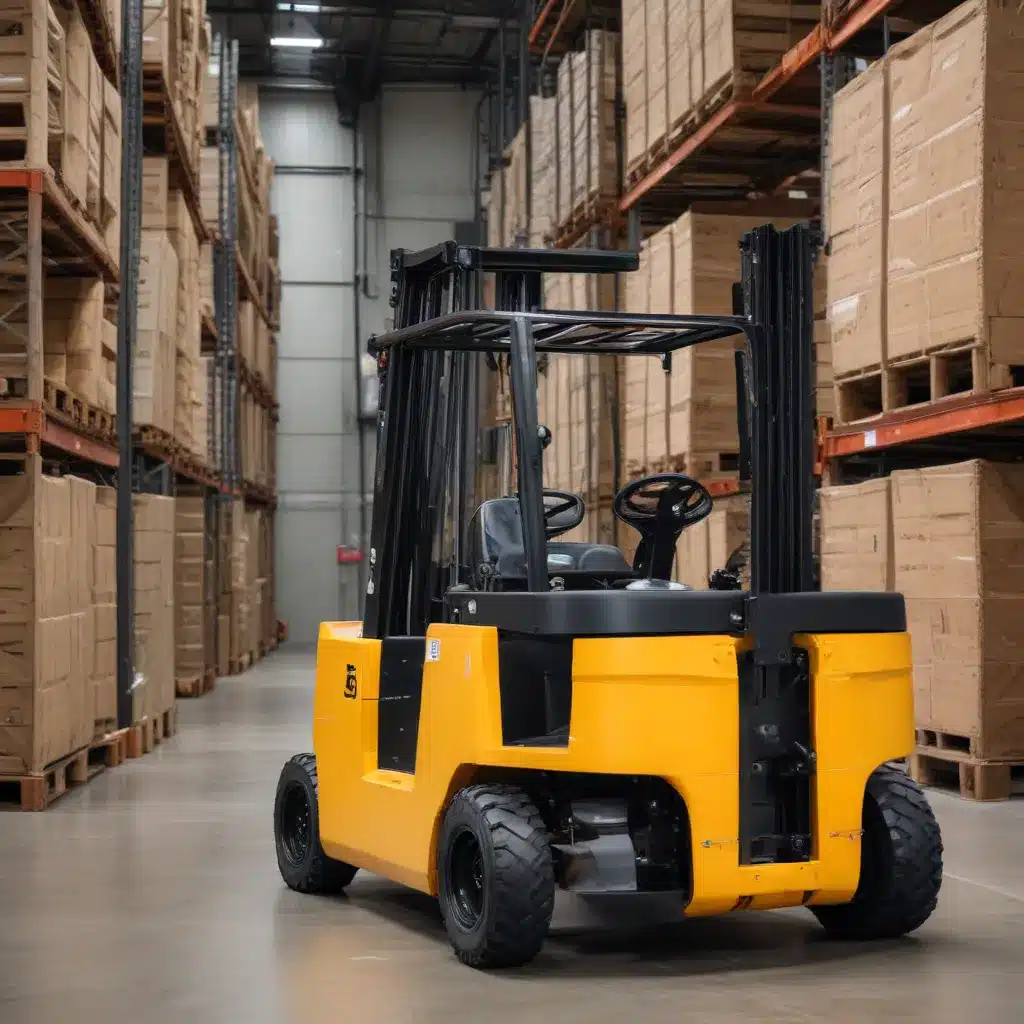
The Evolution of Forklift Attachments
In the dynamic world of material handling, forklift attachments have emerged as game-changers, revolutionizing the way we approach efficiency, versatility, and sustainability. As an experienced industry expert, I’ve witnessed the remarkable advancements in forklift attachments and their profound impact on warehousing, logistics, and beyond.
Forklift attachments are no longer mere accessories – they have evolved into sophisticated tools that unlock new levels of productivity, safety, and environmental responsibility. From specialized clamps and forks to innovative manipulators and lift-assist devices, these attachments have become essential in optimizing material handling operations across diverse industries.
The Sustainability Imperative
In an era where environmental consciousness is paramount, forklift attachments have taken center stage in the pursuit of sustainable material handling practices. As the world shifts towards a greener future, the demand for eco-friendly solutions has become increasingly pressing. Forklift attachments have responded to this call, offering innovative technologies that not only enhance efficiency but also reduce the carbon footprint of material handling operations.
Battery-Powered Forklift Attachments
One of the most significant advancements in forklift attachments is the rise of battery-powered solutions. These attachments, powered by advanced lithium-ion or lead-acid batteries, eliminate the need for diesel or gasoline-powered forklifts, thereby reducing emissions and noise pollution. Battery-powered attachments such as electric clamps, rotators, and positioners enable businesses to operate in a more environmentally conscious manner, contributing to their sustainability goals.
Regenerative Braking Systems
Alongside battery-powered attachments, the introduction of regenerative braking systems has further amplified the sustainability benefits of forklift attachments. These systems harness the kinetic energy generated during braking and deceleration, converting it into electrical energy that is stored in the battery. This not only extends the battery life but also reduces overall energy consumption, making material handling operations more efficient and eco-friendly.
Intelligent Load-Sensing Technology
Forklift attachments have also incorporated advanced load-sensing technology, enabling forklifts to adapt their performance based on the weight and characteristics of the load. This intelligent system optimizes energy consumption, ensures safe handling, and minimizes wear and tear on the equipment, ultimately contributing to a more sustainable material handling ecosystem.
Enhancing Productivity and Versatility
While sustainability is a crucial driver, forklift attachments have also transformed the landscape of productivity and versatility in material handling operations.
Specialized Attachments for Diverse Applications
Forklift attachments now cater to a wide range of specialized applications, from handling delicate goods to maneuvering bulky or unconventional loads. Clamps, rotators, and specialized forks have become essential tools for industries ranging from manufacturing and construction to retail and logistics. These attachments allow forklifts to adapt to unique handling requirements, maximizing efficiency and reducing the need for multiple pieces of equipment.
Improved Ergonomics and Operator Safety
Forklift attachments have also prioritized operator safety and ergonomics, ensuring that material handling tasks are performed with maximum comfort and minimal risk. Attachments like lift-assist devices and ergonomic controls have revolutionized the operator experience, reducing the physical strain associated with repetitive tasks and enhancing overall job satisfaction.
Enhanced Precision and Load Handling
The precision and accuracy offered by forklift attachments have transformed material handling operations. Sophisticated attachments like laser-guided positioning systems and remote-controlled manipulators enable operators to handle delicate or oversized loads with exceptional care and control, minimizing the risk of damage and improving cargo integrity.
The Future of Forklift Attachments
As we look towards the future, the potential of forklift attachments to shape the material handling industry is truly boundless. With ongoing advancements in technology, materials, and design, the next generation of attachments promises to redefine the way we approach efficiency, sustainability, and safety in material handling.
Autonomous and Intelligent Attachments
The integration of artificial intelligence and automation into forklift attachments is a tantalizing prospect. Imagine attachments that can autonomously adjust their performance based on real-time data, optimizing load handling, energy consumption, and maintenance schedules. Such intelligent attachments would revolutionize the industry, reducing human error, enhancing overall productivity, and furthering the drive towards sustainable material handling.
Modular and Adaptable Designs
Forklift attachments are also poised to become increasingly modular and adaptable, allowing businesses to tailor their material handling solutions to their specific needs. Interchangeable components, universal mounting systems, and plug-and-play functionality will empower operators to quickly reconfigure their equipment, maximizing versatility and minimizing downtime.
Predictive Maintenance and IoT Integration
The implementation of predictive maintenance and Internet of Things (IoT) technologies within forklift attachments will revolutionize the way we approach equipment maintenance and operation. By continuously monitoring performance, wear and tear, and energy consumption, these attachments will provide invaluable insights, enabling proactive maintenance and optimized lifespan of the equipment.
Conclusion: Embracing the Future of Sustainable Material Handling
As an industry expert, I am truly excited about the transformative potential of forklift attachments in shaping the future of sustainable material handling. These innovative solutions are not merely accessories – they are the driving force behind increased efficiency, enhanced safety, and a greener tomorrow.
By embracing the advancements in forklift attachments, businesses can position themselves at the forefront of the material handling industry, reaping the benefits of improved productivity, reduced environmental impact, and enhanced operator well-being. The future of material handling is inextricably linked to the evolution of forklift attachments, and those who recognize and capitalize on this opportunity will undoubtedly thrive in the years to come.
I invite you to explore the Forklift Reviews blog to delve deeper into the world of forklift attachments and uncover the latest insights, trends, and best practices that will shape the future of sustainable material handling.

